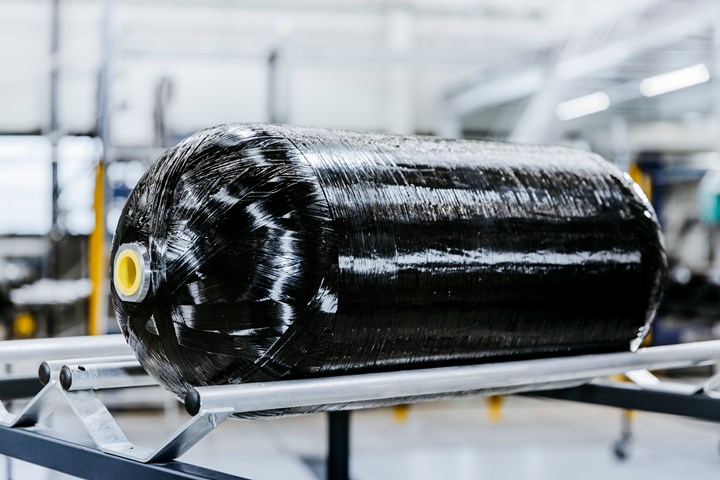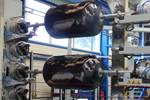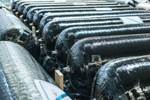Hexagon Purus signs multi-year global agreement for type IV composite hydrogen cylinders
Agreement covers the supply of composite pressure vessels for Air Liquide and its global affiliates.

Photo Credit: Hexagon Purus
(Ålesund, Norway) has signed a global supply agreement with Air Liquide (Paris, France), a leader in gases, technologies and services. The agreement covers the supply of type IV composite hydrogen cylinders to Air Liquide and its global affiliates. The cylinders will be used for transport of hydrogen for industry and mobility.
Hexagon Purus notes that the global agreement designates its as a long-term partner. The company plans to pursue further opportunities within the Air Liquide Group, and in conjunction, has already entered its first local supply agreement with an Air Liquide affiliate in a key region that is adopting hydrogen as a major part of its energy transition.
Hexagon Purus notes that, with the recent surge in activity around hydrogen driven by global policies and projects, there is growing interest in cost-effective solutions to transport it. Hexagon Purus contends that its lightweight composite cylinders are among the most efficient hydrogen gas transport cylinders available worldwide. The cylinders are said to enable very high payloads which reduces the environmental footprint of gas transport, and reduces the total cost of ownership for gas suppliers.
“Hydrogen has a crucial role to play in reducing harmful greenhouse gas emissions and combating global warming. To realize the full potential of hydrogen in the energy transition, we need to scale up the hydrogen ecosystem globally,” says Michael Kleschinski, EVP Light Duty, Distribution & Cylinders, Hexagon Purus. “We are proud to be selected as a partner by Air Liquide, a global leader in this arena, to support the delivery of hydrogen for customers and projects around the world.”
Related Content
-
Revolutionizing space composites: A new era of satellite materials
A new approach for high volumes of small satellite structures uses low-CTE, low-cost CFRP cellular core, robust single-ply skins and modular panel systems to cut lead time, labor and cost for reflectors, solar arrays and more.
-
RTM, dry braided fabric enable faster, cost-effective manufacture for hydrokinetic turbine components
Switching from prepreg to RTM led to significant time and cost savings for the manufacture of fiberglass struts and complex carbon fiber composite foils that power ORPC’s RivGen systems.
-
Ceramic matrix composites: Faster, cheaper, higher temperature
New players proliferate, increasing CMC materials and manufacturing capacity, novel processes and automation to meet demand for higher part volumes and performance.



